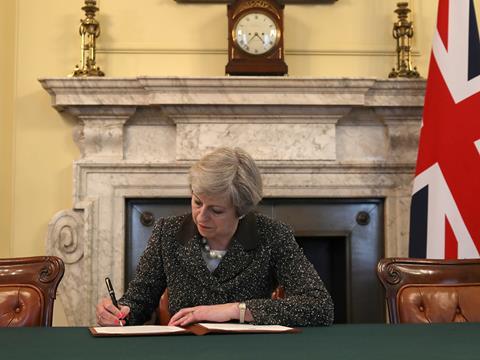
It’s Brexit day today. It’s a bit like taking a jolly coach trip to god knows where. Theresa May is sitting bolt upright behind the wheel, Nigel Farage is up front on a microphone cheerfully pointing out the sights to a bunch of irascible pensioners, and Boris Johnson is making a mess of trying to unfold a map and pretending he knows the way. “Isn’t that Beachy Head?” you say. “Shouldn’t we stop?”
There is no excuse for Theresa May’s hastily unelected government to go through with Brexit. Only 17 out of the 65 million people that live in Britain voted to leave. There was no legal requirement to trigger Article 50. Further parliamentary debate could have been ordered and legislation delayed. The long grass was waiting. It would have been a very unpopular decision in some quarters and flak would have arrived, but the government takes flak every day anyway. Is Junior Doctor flak worse than Brexit flak? And others would have welcomed it as a rational and sensible intervention.
Still, it’s done now. As of 12.30pm the UK will commence divorce proceedings with the EU. Like most divorces it will be extremely expensive, divisive and painfully drawn out. The pound reacted early by dropping, but it will fluctuate all day. Every dip will be sighed at by Remainers, every rally cheered as a sign that Brexiteers were right. It’s embarrassing to watch.
Negotiations will be tortuous and complex as the UK tries to convince the EU to continue trading with it on equally favourable terms. Supermarket prices and import costs will rise. New and complex border controls will demand more resources. New restrictions on free movement of labour and the negative impact of currency devaluation on EU workers’ wages will continue to generate manufacturing concerns. All of which, plus the potential for new trade tariffs and other supply chain challenges, mean the food and drink industry faces a more troubled time than most.
So there is little else for the food and drink industry to do but to try to make Brexit work in a positive and determined fashion. Putting pen to paper on Article 50 is fiscal folly but at least it also puts an end to the uncertainty that has been swirling around for 278 days. Now clarity will begin to emerge from the gloom and the industry can get on with doing business. Chinks of light like this are working to unite the 43 fmcg trade organisations that met at the Food and Drink Federation’s HQ last Thursday. All are focused on forging a strategic alliance between government and the industry.
This morning FDF director general Ian Wright said triggering Article 50 “provides us with a definitive timeframe for the UK to exit the EU and the clock is ticking. We hope this means we can move swiftly from the realm of speculation into one where real issues are being resolved. The results of the negotiation will have lasting implications - for our people, businesses and economy. Food is at the heart of our culture, identity and security. It is vital that the government prioritises food and drink.”
He added the FDF would work “tirelessly to help government to secure the best possible outcomes on future trade, access to the right workforce, regulation, and ensuring a seamless border with the Republic of Ireland.”
The reality is that, whatever it aims for, however the industry agrees to progress, and however food and drink is ranked by the government in terms of positioning at the negotiating table, at least the industry itself is sticking together at this divided time. In this far from ideal situation, a united front is the way forward. And it’s heartening to see food and drink showing the rest how it should be done.







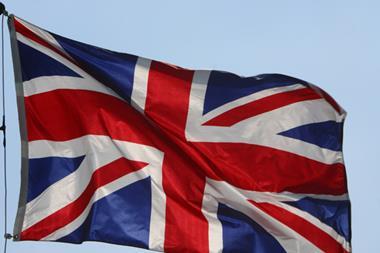
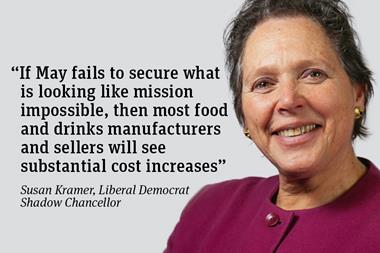
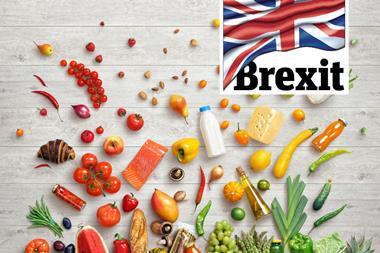
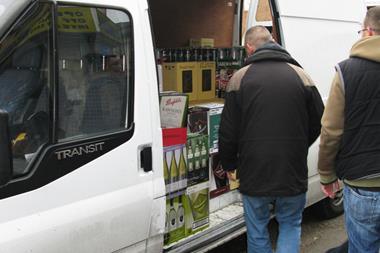

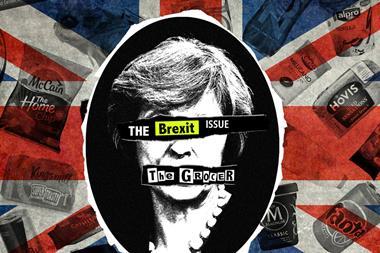






No comments yet